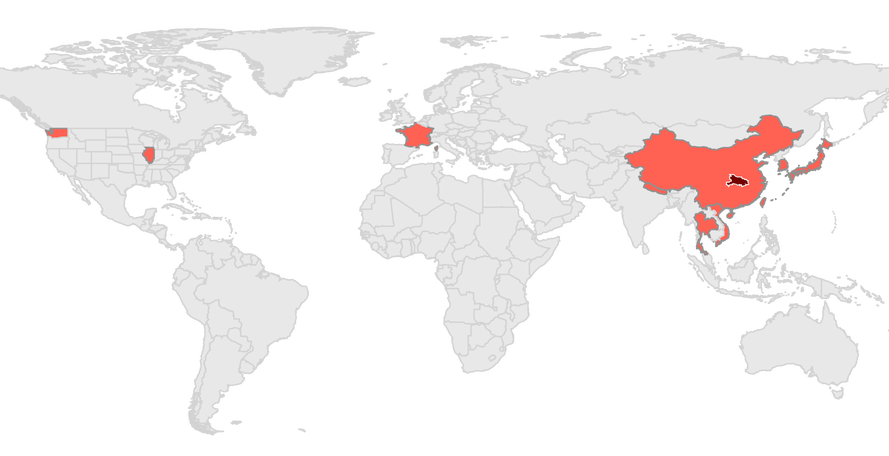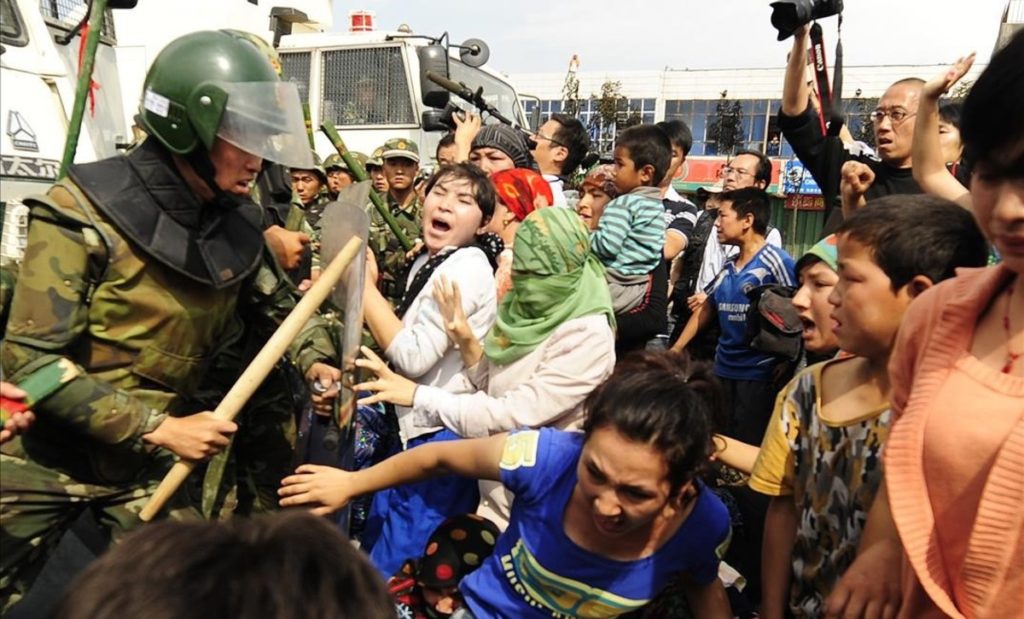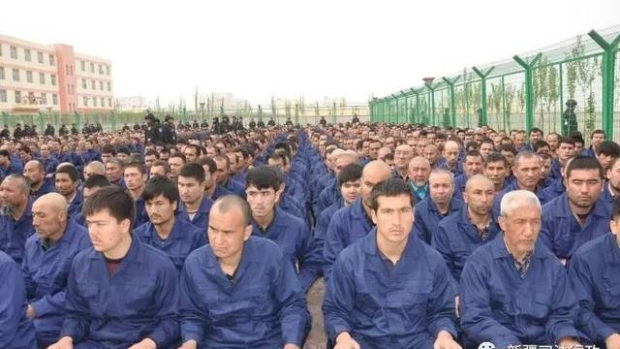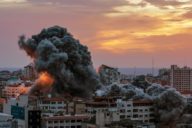The Wuhan coronavirus has hit Xinjiang, where China has imprisoned at least 1 million Uighur Muslims. Its filthy detention camps will make inmates sitting ducks.
- The Wuhan coronavirus has reached Xinjiang in western China, prompting fears that the million Uighur Muslims detained in prison camps across the region are helpless to infection.
- Authorities reported two cases in the autonomous southwestern region on Thursday, Radio Free Asia (RFA) and The Wall Street Journal reported, citing local health authorities.
- Conditions at the prison camps are dire, with poor sanitation, hygiene, and cramped living conditions, according to former inmates. There are at least 465 scattered across the region.
- The coronavirus, also called 2019-nCoV, has now killed 26 people and infected more than 870.
- Dolkun Isa, president of the World Uyghur Congress exile group, told RFA “the lives of millions of people will be at stake.”
- Visit Business Insider’s homepage for more stories.
The Wuhan coronavirus that has killed at least 26 people in China hit the western region of Xinjiang on Thursday.
At 6 p.m. local time health authorities reported a 47-year-old man, named as Li, and a 52-year-old man, named as Gu, were infected, Radio Free Asia (RFA) reported, citing the state-run China Central Television (CCTV).
Authorities said the pair had visited Wuhan, in Hubei, where the first case was reported on January 10, RFA said.
The Wall Street Journal also reported on the outbreak in Xinjiang, citing health authorities.
 The development is significant. If the virus spreads in Xinjiang it could leave the estimated 1 million Uighur Muslims detained in prison camps across the region highly vulnerable to infection. Uighurs call the region East Turkestan.
The development is significant. If the virus spreads in Xinjiang it could leave the estimated 1 million Uighur Muslims detained in prison camps across the region highly vulnerable to infection. Uighurs call the region East Turkestan.
The camps are filthy, have poor infrastructure, and are packed to busting with prisoners, according to testimony of former inmates. This makes them an ideal breeding ground for disease and infection.
Plastic buckets for toilets, and rooms so small people have to take turns sleeping
 Omir, an ex-inmate of a camp in Karamay, northern Xinjiang, told the BBC in 2018 he shared a room with 45 other people, and had to take turns sleeping because there was so little space.
Omir, an ex-inmate of a camp in Karamay, northern Xinjiang, told the BBC in 2018 he shared a room with 45 other people, and had to take turns sleeping because there was so little space.
Sayragul Sauytbay, who escaped from a camp in March 2018, separately told Haaretz: “The food was bad, there weren’t enough hours for sleep and the hygiene was atrocious,” she said.
“There were almost 20 people in a room of 16 square meters,” she added.”
“Each room had a plastic bucket for a toilet. Every prisoner was given two minutes a day to use the toilet, and the bucket was emptied only once a day.”
A ‘massive disaster’ looms
If the Wuhan virus makes its way into the camps it will have “serious implications” for the detainees, Dolkun Isa, president of the World Uyghur Congress, told RFA, warning “the lives of millions of people will be at stake.”
James Millward, professor of Chinese and Central Asian history at Georgetown University, tweeted that “cramped conditions, poor hygiene, cold, stressed immune systems” could result in “a massive disaster.”
“Guarding against epidemics was one of the first requisites in Zhu Hailun manual on setting up camps,” he added, referring to official manuals for how camps should be set up, which were leaked to the International Consortium of Investigative Journalists last year.
 The virus, also called 2019-nCoV, is a new strain of coronavirus — which can infect the nose, throat, and sinuses — that has not been seen by humans before.
The virus, also called 2019-nCoV, is a new strain of coronavirus — which can infect the nose, throat, and sinuses — that has not been seen by humans before.
Authorities on Monday said the virus can spread from one human to another, having previously said that they believed it could only spread from animals to humans.
It is thought to have started with bats, who passed it to snakes, who then passed it to humans, scientists said.
While serious, the coronavirus is not yet a public health emergency, according to the World Health Organization.
“Make no mistake. This is an emergency in China, but it has not yet become a global health emergency,” director general Tedros Adhanom Ghebreyesus said Thursday.
“Guarding against epidemics was one of the first requisites in Zhu Hailun manual on setting up camps,” he added, referring to official manuals for how camps should be set up, which were leaked to the International Consortium of Investigative Journalists last year.
The virus, also called 2019-nCoV, is a new strain of coronavirus — which can infect the nose, throat, and sinuses — that has not been seen by humans before.
Authorities on Monday said the virus can spread from one human to another, having previously said that they believed it could only spread from animals to humans.
It is thought to have started with bats, who passed it to snakes, who then passed it to humans, scientists said.
While serious, the coronavirus is not yet a public health emergency, according to the World Health Organization.
“Make no mistake. This is an emergency in China, but it has not yet become a global health emergency,” director general Tedros Adhanom Ghebreyesus said Thursday.
Bill Bostock
Source: businessinsider.fr















No Comments